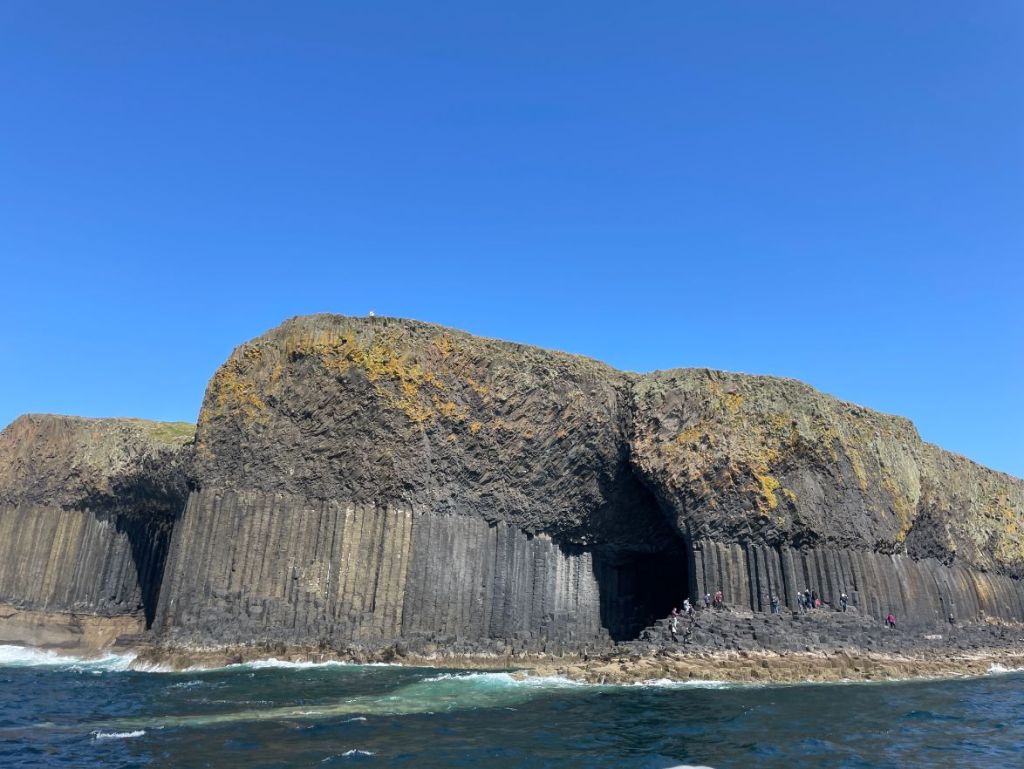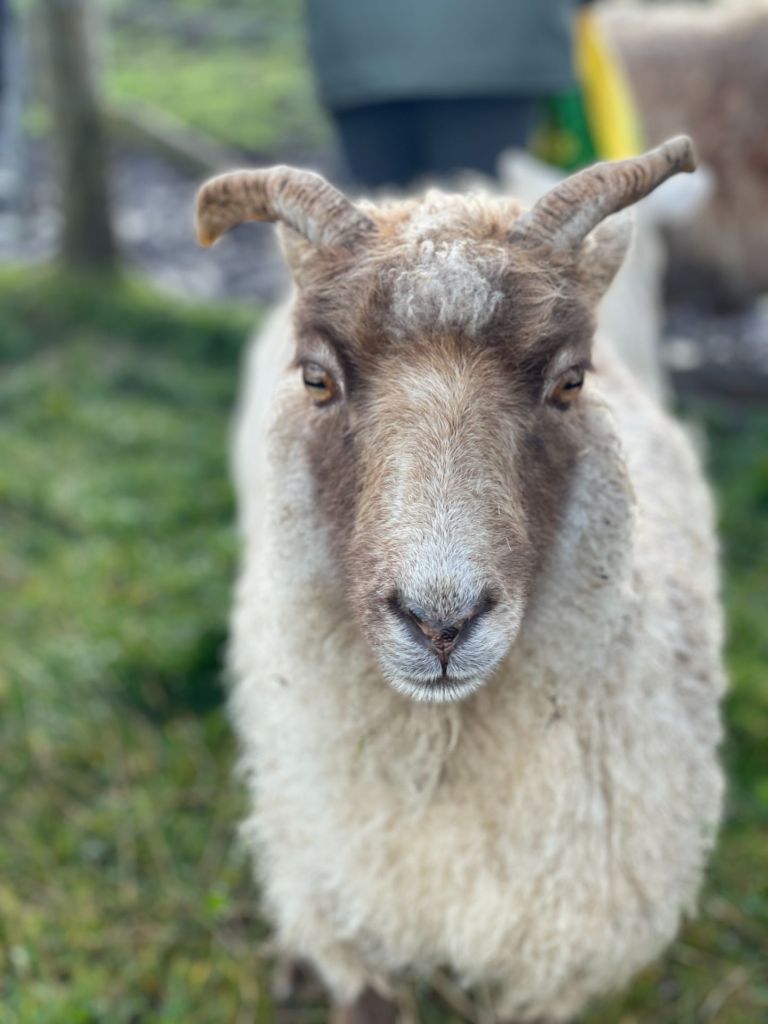Wild at Art
Creative Experiences in Scotland
Responsible travel
Our values – respect and kindness towards people, places & the planet
Ever since we set up Wild at Art in 2012, what we do and how we do it has been guided by respect for, and kindness towards, the places we visit and the people we work with, but also others that are in some way affected by our activities. Initially this approach just came naturally to us anyway. But with the general shift in focus towards more sustainable travel we’re actively seeking to make a positive contribution and minimize any negative impacts in a more conscious manner. We feel lucky in that the kind of travellers our creative experiences attract tend to be very much on the same wave length as us on that.
We promote travel that is inspiring and enriching, and at the same time benefits local communities and helps to protect our earth.
Putting our values into practice
In summary, these are the principles that underpin our work:
Slow & mindful travel
With Scotland having such an abundance of stunning and wonderful locations it can be tempting to cram as much as possible into one trip. And we sometimes forget that ideally the point of going on holidays is to slow down and just experience a place. We believe that taking a slower pace allows our guests to better connect with a location and benefiting more from that life-enriching effect of a creative vacation. This is especially true for art retreats such as the Creative Retreat in Orkney, where the pace is slower overall and less transport is required.
Nurturing respect and appreciation through authentic experiences
We love curating creative experiences and a lot of research and exploration goes into every single one of the itineraries. Those “ingredients” that are the most real and authentic also offer the best opportunities for our guests to develop their creative skills and at the same time learn about traditional as well as contemporary Scottish arts and crafts, cultural heritage and local environments. This often involves bringing in locals to tell their stories or visiting local artists’ studios or workshops.
One example is the herbalist session at Culross Palace Garden, which is part of the Outlander Art Experience. A herbal walk where guests learn about the healing and culinary qualities of common plants is followed by a workshop were guests get to make their own natural balms and creams.
Another example are the painting cruises in the Hebrides, where guests can get actively involved in collecting data for the Hebridean Whale and Dolphin Trust with guidance from experienced ecologists.
Among many other “ingredients”, the itinerary for our Skye Textile Experience includes a visit and tour at Skye Weavers, who are passionate about the need to preserve the knowledge and quality associated with Scottish tweeds and garments.The same tour takes us to The Handspinner Having Fun in Broadford, where we spend a day crafting. They promote the use of fleece from rare breed sheep and produce products that are ‘slow fashion’, which encourages us to buy fewer garments of higher quality and made using more sustainable processes. HHF select their knitters and spinners from local populations, or people who have close ties to Skye; this helps to support a small, vulnerable, rural community.
Supporting local economies & initiatives
When it comes to choosing tutors, suppliers and supplies we go for local options as much as we can, providing they fit the bill in terms of quality and inspiration factor. When paying our tutors we pay fair fees, using the rates recommended by the Scottish Artists’ Union for guidance.
Many of our partners are charities or local enterprises, such as the Coorie Creative weaving studio in Stirling (from Autumn 2020), a social enterprise whose commercial workshops fund therapeutic weaving classes for people who have experienced loss or trauma.

Linlithgow Union Canal Society (LUCS), our partner on the Gongoozler Canal Art Experience, is a 100% volunteer-run charity and its and their mission is to promote and encourage the restoration and use of the Union Canal, particularly in and around Linlithgow. One of LUCS’s boats will be our “floating studio” on the canal and we will also use their indoor space at the canal centre as our indoor studio. A small share of each booking under our Year of Scotland’s Coasts and Waters programme goes to LUCS.
Our partner hotel Ten Hill Place in Edinburgh is owned by the Royal College of Surgeons of Edinburgh and all profits go directly towards the training of surgeons worldwide.
We always keep our eyes and ears open for local happenings, so we can build visits to local events, such as theatre performances or music nights our guests might enjoy, into our itinerary. This often happens quite spontaneously – we recognise an interesting opportunity when we see it!
Places & seasons less travelled
Scotland, with its stunning landscapes and special light is beautiful all year round, not just in the traditional tourism season. In a move to make this out-of-season beauty more visible and accessible to visitors, we’re adding more creative experiences outwith the busiest months. Imagine walking on a quiet winter beach in Orkney or Skye to collect images and impressions, and then sitting by the fire in a cosy studio or cottage to paint them – what’s not to like!
Similarly, there are less well known places in Scotland that are fantastic but often overlooked when holiday plans are made. On the other hand there are tourism hotspots in danger of over-tourism. We love finding the hidden gems – such as Angus and the Scottish Borders – and inviting guest to discover them too.

Caring for the natural environment
We are lucky to live and work in one of the most beautiful countries of the world and are committed to preserving its natural environment and minimise negative impacts as much as we can. Ways in which we do this include:
- Saving on the carbon footprint of commuting and energy use that comes with running an office, as we work from home and local coffee shops.
- Using small local transport providers and public transport rather than keeping our own road transport vehicles.
- Advising guest on public transport options for getting to and from holiday locations.
- Encouraging guests to bring their own reusable water bottles and providing them as necessary.
- Reusing art equipment and materials as much as possible and avoiding single use items such as wet wipes.
- Using recycled printer cartridges and printing only if absolutely needed.
- Avoiding single use plastic items (e.g. for snacks and picnics during trips).
- Recycling waste as much as possible.
Our preferred and recommended supplier of art materials is Jackson’s. As well as reducing packaging as much as possible, they make their packaging as environmentally-friendly as it can be. It’s great how their top quality arts materials arrive wrapped in recyclable or compostable stuff – find out more.
♥
Values become more powerful when shared
It’s important to us that the people we work with share our values as much as possible and join us in communicating them as appropriate. Some of our tutors are actively involved in conservation projects or similar initiatives: Steve Bretel, who has a great passion for wild spaces, is Artist in Residence at Rahoy Hills nature reserve managed by the Scottish Wildlife Trust and Ardtornish. Leo du Feu is involved in environmental campaigning and regular voluntary bird surveys for the British Trust for Ornithology. He teaches regular art workshops for Edinburgh charity Art in Healthcare and gives talks about his Scotland by Rail Scotrail-supported art & nature travels.
In a short video on her profile page North Uist-based artist Ellis O’Conner explains how art can be a very powerful way of raising awareness of and putting others in touch with the natural environment.
The partners we work with on the Skye Textile Experience all have a strong focus on sustainability. Here are some examples: –
- Shilasdair Yarn use plants that grow in their workshop’s immediate surroundings and spring water for dyeing yarn supplied by their partners, who in turn have a focus on ethical and sustainable practices.
- Skye Skyns are the only sheepskin tannery in Scotland and the skins they process are all by-products. They source their skins from the nearest abattoir near Inverness, keeping transport miles to a minimum and preventing Scottish raw skins being exported to producers overseas. Skye Skyns recycle wherever they can.
- Island at the Edge, the croft in Edinbane where we’ll spend a full day, live ‘off grid’ and generate their own electricity via green technology including solar panels. The wool they use for spinning and knitting comes from their own croft.
♥





























